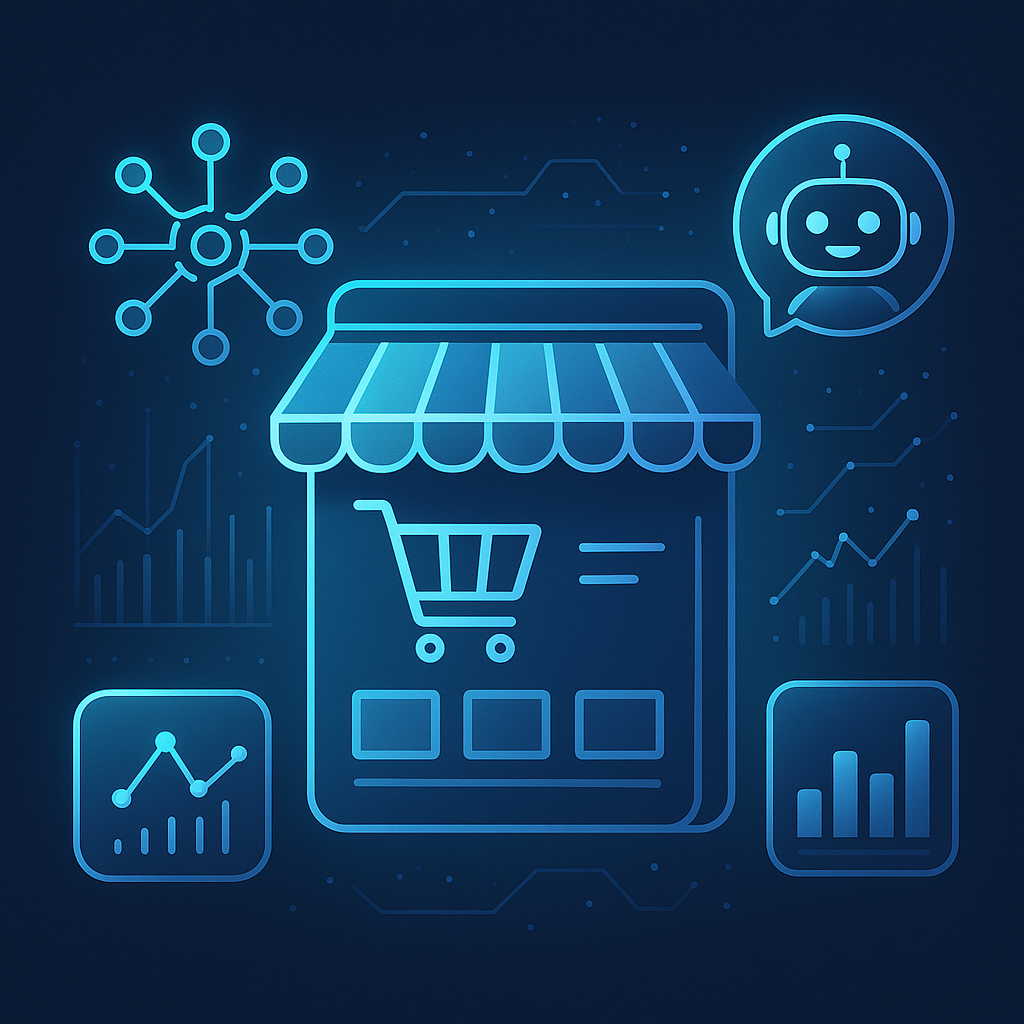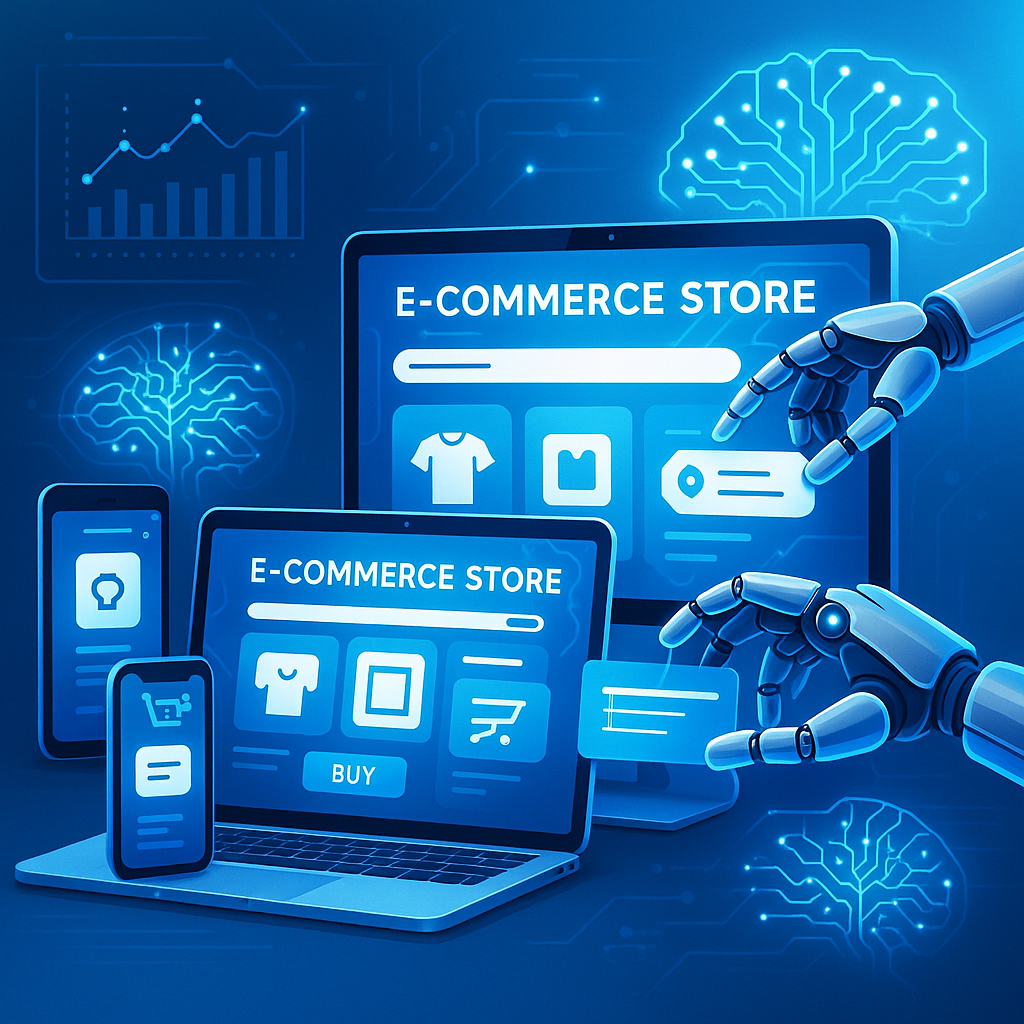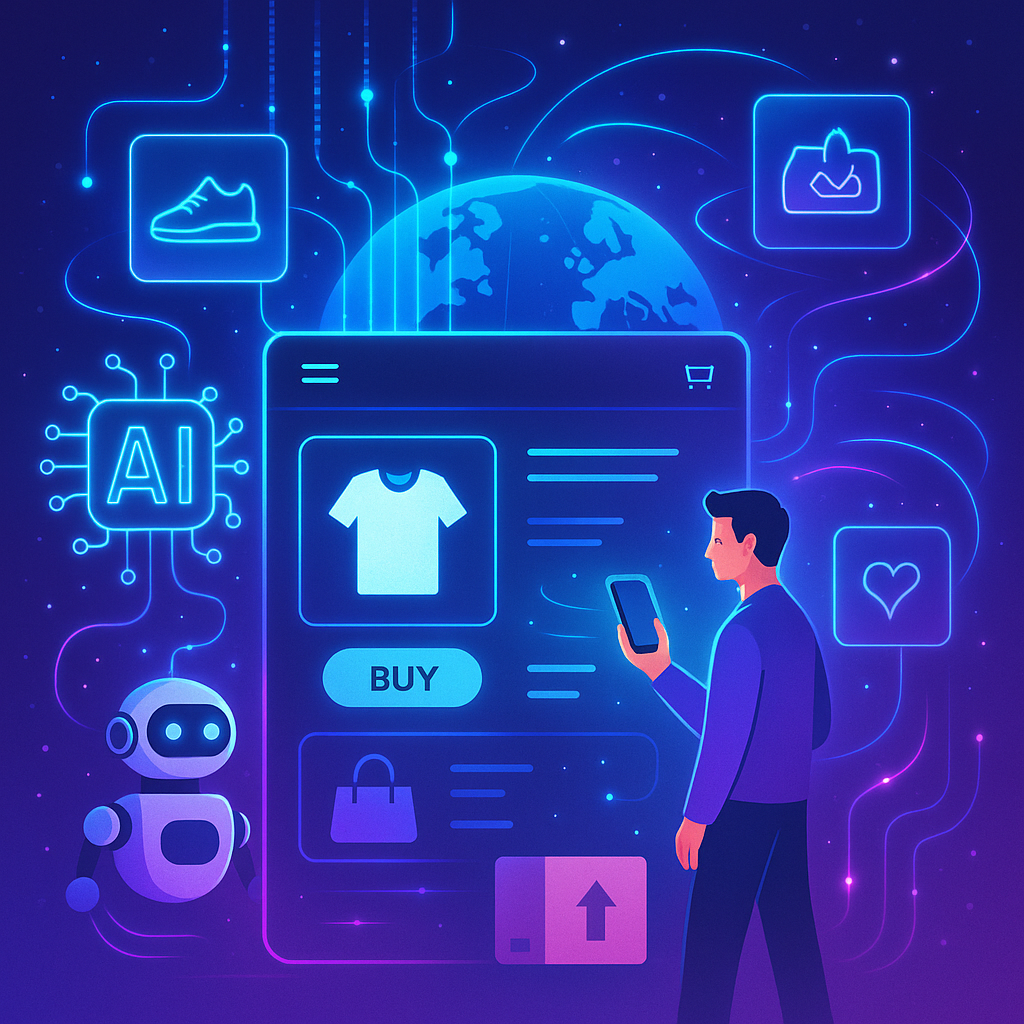
Harnessing AI in E-Commerce: Revolutionizing Digital Marketing
Understanding AI: What Is It?
Artificial Intelligence, commonly referred to as AI, describes computer systems designed to perform tasks typically requiring human intelligence. These include learning from data, recognizing patterns, making decisions, and even understanding natural language. By 2025, AI has evolved far beyond rule-based automation to include complex machine learning algorithms and neural networks that continuously adapt and improve from real-time data.
At its core, AI mimics cognitive functions through technologies like machine learning (ML), natural language processing (NLP), computer vision, and predictive analytics. This broad technology umbrella empowers machines to interpret vast datasets, identify trends, and generate actionable insights — a capability that's invaluable for digital marketing in e-commerce.
The Rise of Ecom Stores in a Data-Driven Landscape
Online stores are no longer just virtual catalogs; they are dynamic marketplaces where personalized, seamless shopping experiences define success. In today's competitive environment, an ecom store must understand not only what customers want, but anticipate desires before buyers even articulate them.
Every click, scroll, and purchase leaves a digital footprint. Harnessing AI means turning this raw behavioral data into golden opportunities. From tailoring product recommendations to optimizing pricing strategies, AI unlocks a new level of marketing precision and operational efficiency.
Using AI in Digital Marketing: Transforming Online Store Strategies
Personalization at Scale
AI algorithms analyze individual customer behaviors, preferences, and purchase histories to craft hyper-personalized marketing messages and product suggestions. For example, when a shopper browses accessories on an ecom platform, AI can recommend complementary items, such as matching bags or footwear, boosting cross-selling without overwhelming the customer with irrelevant choices.
Dynamic Content Creation and A/B Testing
AI-driven tools automate content customization. For instance, digital ads and emails can adapt their language, visuals, and offers based on the viewer's profile and interaction history. Additionally, AI enhances A/B testing by rapidly identifying which versions resonate more with target segments, accelerating campaign optimization.
Predictive Analytics for Inventory and Demand Forecasting
Using historic sales data merged with external variables like seasonality, emerging trends, and market shifts, AI predicts product demand. This ensures that ecom stores maintain optimal inventory levels, reduce stockouts or overstock scenarios, and manage logistics cost-effectively.
AI-Powered Chatbots and Voice Assistants
Modern AI chatbots handle customer inquiries instantly, offering 24/7 support while improving user experience. Beyond simple FAQs, advanced AI assistants understand context, provide personalized shopping advice, and even upsell proactively. Voice search optimization, fueled by AI, has also become critical as consumers increasingly use smart devices for shopping.
Innovative Examples: AI in Action for E-Commerce Marketing
1. Visual Search Integration: AI enables customers to upload images and find visually similar products instantly. This technology reduces friction in the customer journey, increases conversion rates, and captures trends emerging on social media.
2. Sentiment Analysis for Customer Feedback: By analyzing reviews, social media comments, and support tickets, AI gauges public perception and product sentiment. Ecom stores can act swiftly on negative feedback or capitalize on positive trends to guide marketing and product development.
3. Programmatic Advertising: AI automates ad buying and placement in real time, targeting audiences with precision based on behavior, context, and propensity to buy. This optimizes ad spend and maximizes ROI for online stores.
Challenges and Considerations
While AI presents immense opportunities, ecom stores must navigate challenges like data privacy, algorithmic bias, and integration complexity. Ethical AI use involves transparent data practices and ensuring recommendations do not reinforce disparities or limit consumer choice.
Moreover, businesses need to balance automation with human creativity and empathy. AI should amplify human-led marketing strategies, not replace authentic engagement.
The Future of AI in E-Commerce Digital Marketing
Looking ahead, AI will drive even more immersive shopping experiences featuring augmented reality, AI-powered virtual try-ons, and deeper emotional engagement via sentiment-responsive interfaces. The integration of AI with emerging technologies like blockchain and 5G will amplify personalization and security.
For ecom stores, embracing AI as a core digital marketing tool is no longer optional—it’s essential for thriving in a rapidly evolving landscape where customer expectations rise continually.
Conclusion
Understanding "AI, what is it?" is the first step for any online retailer aiming to leverage technology strategically. From tailored personalization to real-time insights, AI revolutionizes how e-commerce stores approach digital marketing. The result is richer customer experiences, smarter operations, and ultimately, stronger business performance in 2025 and beyond.







